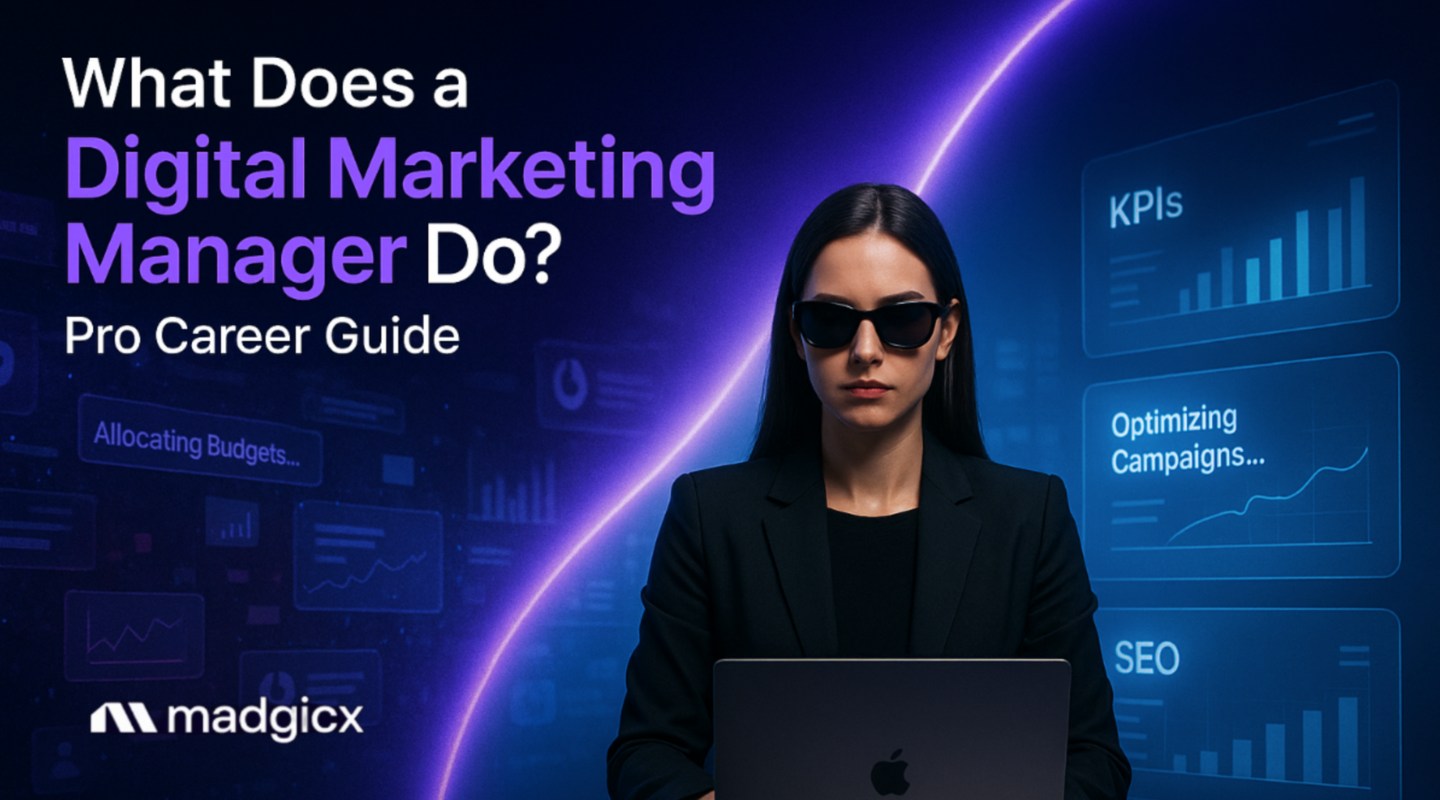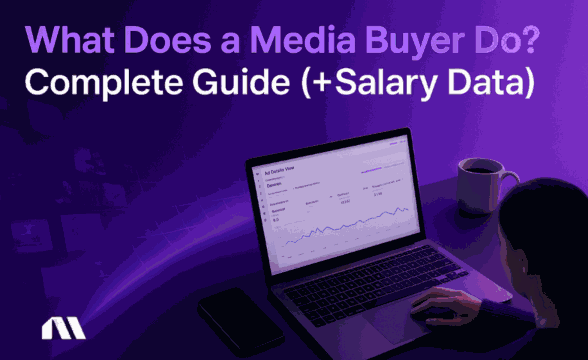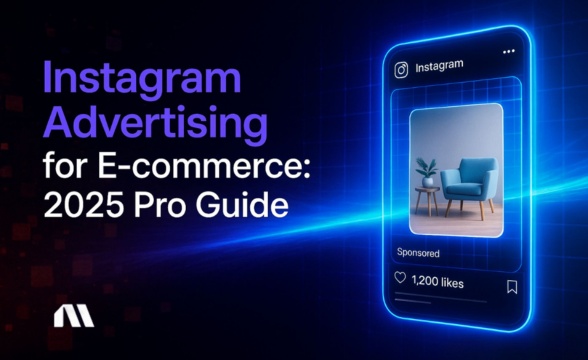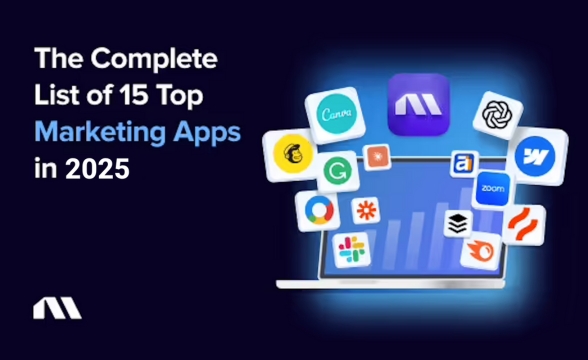Discover what digital marketing managers do, the required skills, salary scale, and career paths. The guide to your digital marketing management career.
Ever scrolled through LinkedIn and wondered what those "Digital Marketing Manager" titles actually do all day? You're not alone.
While everyone's talking about digital marketing being the future, the actual role of a digital marketing manager remains surprisingly mysterious to most people.
Here's the straight answer: A digital marketing manager is a professional who develops, implements, and manages marketing campaigns that promote a company's brand, products, and services across digital channels. They're the strategic minds behind those Facebook ads you see, the email campaigns in your inbox, and the social media content that actually converts browsers into buyers.
But that's just scratching the surface. If you're considering this career path, thinking about hiring one, or just curious about what makes digital marketing tick, you're in for quite the journey.
The role has evolved dramatically, especially with AI and automation changing the game entirely.
The Digital Marketing Manager Role: Beyond the Job Description
Let's be real – most job descriptions make digital marketing managers sound like they're juggling flaming torches while riding a unicycle. And honestly? That's not far from the truth.
A digital marketing manager sits at the intersection of creativity, data analysis, and strategic thinking. They're responsible for the entire digital presence of a company, from the first touchpoint a potential customer has with the brand to the final conversion and beyond.
Here's what makes this role unique: Unlike traditional marketing managers who might focus on print ads or billboards, digital marketing managers work in a world where everything is measurable, trackable, and constantly changing.
The digital advertising market is an absolute powerhouse, valued at around $667 billion in 2024. It’s projected to surge past $1.5 trillion by 2030, growing at a CAGR of 13.9%.
Core Responsibilities: What Digital Marketing Managers Actually Do
Strategy Development and Planning
This isn't about throwing spaghetti at the wall and seeing what sticks. Digital marketing managers develop comprehensive strategies that align with business goals.
They analyze market trends, competitor activities, and customer behavior to create roadmaps that actually work.
Day-to-day examples:
- Conducting quarterly strategy reviews
- Setting campaign budgets and KPI targets
- Creating content calendars and campaign timelines
- Analyzing customer journey maps
Pro Tip: The best digital marketing managers spend 20% of their time on strategic planning and 80% on execution and optimization. This ratio ensures they're not just busy, but actually moving the needle on business results.
Campaign Management and Optimization
Here's where the rubber meets the road. Digital marketing managers oversee campaigns across multiple channels – Facebook, Instagram, Google Ads, email marketing, and more.
But it's not just about launching campaigns; it's about constantly optimizing them for better performance.
Why? Because successful campaigns require constant monitoring, testing, and adjustment.
What this looks like in practice:
- A/B testing ad creative and copy
- Adjusting targeting parameters based on performance data
- Reallocating budgets between high and low-performing campaigns
- Implementing automation rules to optimize with minimal daily oversight
Data Analysis and Reporting
If you're not comfortable with numbers, this role might challenge you. Digital marketing managers live in spreadsheets, dashboards, and analytics platforms.
They need to translate complex data into actionable insights and communicate results to stakeholders who may not understand the technical details.
Key metrics they track:
- Return on Ad Spend (ROAS) - The holy grail of performance marketing
- Cost Per Acquisition (CPA) - How much it costs to get a new customer
- Conversion rates across different channels
- Customer Lifetime Value (CLV) - Long-term customer worth
- Attribution across the customer journey
Pro Tip: Master the art of storytelling with data. Executives don't want to see 47 different metrics – they want to understand what the data means for the business and what actions to take next.
Team Leadership and Collaboration
Most digital marketing managers don't work in isolation. They coordinate with designers, copywriters, developers, and other marketing team members.
They also work closely with sales teams to ensure marketing qualified leads convert into customers.
Collaboration responsibilities:
- Briefing creative teams on campaign requirements
- Working with developers on landing page optimization
- Coordinating with sales teams on lead handoff processes
- Managing relationships with external agencies and vendors
Technology and Tool Management
Modern digital marketing is impossible without the right tools. Digital marketing managers evaluate, implement, and manage various marketing technologies.
This includes everything from social media advertising platforms to automation tools that streamline repetitive tasks.
Essential tool categories:
- Advertising platforms (Facebook Ads Manager, Google Ads)
- Analytics and reporting tools (Google Analytics, platform-specific dashboards)
- Automation and optimization platforms
- Email marketing software
- AI Social media management tools
- Customer relationship management (CRM) systems
In today's competitive landscape, digital marketing managers must be able to leverage AI technology to handle mundane optimization tasks for greater accuracy and time savings. Tools like Madgicx's AI Marketer function as your personal media buyer, monitoring your Meta ads around the clock while you focus on high-level strategy. The AI Marketer continuously scans for account anomalies and identifies opportunities to maximize your ad spend. When it spots an optimization opportunity, you simply click "Launch" on the recommendation, and the system handles the implementation automatically.
Test it out with the 7-day free trial.
Essential Skills for Digital Marketing Managers
Technical Skills
Data Analysis and Interpretation
You don't need to be a data scientist, but you absolutely need to be comfortable with numbers. Digital marketing managers must understand statistical significance, correlation vs. causation, and how to draw actionable insights from complex datasets.
Platform Proficiency
Each advertising platform has its own quirks, best practices, and optimization strategies. Successful digital marketing managers develop deep expertise in the platforms most relevant to their business.
Marketing Automation
Understanding how to set up and manage automated workflows is crucial. This includes email sequences, retargeting campaigns, and optimization rules that improve performance with minimal daily oversight required.
Strategic Skills
Customer Journey Mapping
Digital marketing managers need to understand how customers move from awareness to purchase and beyond. This involves mapping touchpoints, identifying conversion barriers, and optimizing each stage of the funnel.
Budget Management
Effective budget allocation is one of the most critical skills for digital marketing managers. It’s about knowing how to distribute spend across channels, campaigns, and time periods to maximize ROI. This includes balancing proven high-performing channels with experimental initiatives, making data-driven adjustments, and ensuring resources are aligned with business goals.
Competitive Analysis
Staying ahead requires understanding what competitors are doing well (and poorly). Digital marketing managers regularly analyze competitor strategies, ad creative, and positioning to identify opportunities.
Soft Skills
Communication
You'll be explaining complex campaign performance to executives who may not understand the difference between impressions and clicks. Clear, concise communication is essential.
Adaptability
Digital platforms change constantly. iOS updates affect tracking, new ad formats launch, and algorithm changes can impact performance overnight.
Successful digital marketing managers roll with these changes rather than fighting them.
Project Management
Juggling multiple campaigns, deadlines, and stakeholders requires strong organizational skills and the ability to prioritize effectively.
Pro Tip: Develop a personal system for staying organized. Whether it's project management software, detailed calendars, or simple checklists, find what works for you and stick with it. Chaos is the enemy of good marketing.
How to Become a Digital Marketing Manager
Entry-Level Career Paths
Most digital marketing managers don't start in management roles. Common entry points include:
Digital Marketing Specialist/Coordinator
These roles focus on execution rather than strategy. You'll learn platform mechanics, basic optimization techniques, and how to interpret performance data.
Social Media Manager
While more focused on organic content, these roles provide valuable experience with social media marketing tools and audience engagement strategies.
PPC Specialist
Focused specifically on paid advertising campaigns, these roles provide deep technical knowledge of platforms like Facebook and Google Ads.
Education and Certification Requirements
Formal Education
While not always required, most digital marketing managers have bachelor's degrees in marketing, business, communications, or related fields. However, the industry increasingly values practical experience and demonstrated results over formal credentials.
Professional Certifications
- Google Ads certifications (Search, Display, Video, Shopping)
- Facebook Blueprint certifications
- HubSpot Content Marketing and Inbound Marketing certifications
- Google Analytics Individual Qualification (IQ)
Continuous Learning
The digital marketing landscape changes rapidly. Successful professionals commit to ongoing education through industry blogs, webinars, conferences, and hands-on experimentation.
Building Relevant Experience
Start with Personal Projects
Create your own campaigns, even with small budgets. Document your process, results, and learnings. This demonstrates initiative and provides concrete examples for interviews.
Freelance or Consulting Work
Many digital marketing managers start by helping small businesses with their advertising efforts. This provides diverse experience across different industries and business models.
Internal Transitions
If you're already working at a company, volunteer to help with digital marketing initiatives. This allows you to gain experience while maintaining your current role.
Digital Marketing Manager Salary Expectations
National Averages
According to Glassdoor, digital marketing managers earn an average salary of $130Kper year.
Salary ranges by experience level:
- Entry-level (0-3 years): $74K - $140K
- Mid-level (4-6 years): $89K - $153K
- Senior-level (7-10 years): $98K - $168K
- Director-level: Up to $210K
Factors Affecting Compensation
Geographic Location
Major metropolitan areas typically offer higher salaries but also have higher costs of living. Remote work has somewhat equalized this, but location still matters.
Industry Sector
Technology companies, financial services, and e-commerce businesses typically pay premium salaries for digital marketing talent.
Company Size
Larger companies often offer higher base salaries and better benefits, while smaller companies may offer equity, more responsibility, and faster career advancement.
Specialization
Digital marketing managers with expertise in high-demand areas like marketing automation, data analysis, or specific platforms often command higher salaries.
Essential Tools and Technologies
Advertising Platforms
Meta (Facebook and Instagram)
Still the dominant platform for most businesses, especially those targeting consumers. Understanding Facebook's advertising ecosystem, including custom audiences, lookalike targeting, and campaign optimization, is crucial.
Google Ads
Essential for businesses with search-driven customer acquisition strategies. Includes Search, Display, Shopping, and YouTube advertising.
LinkedIn Ads
Critical for B2B companies and professional services.
Analytics and Reporting
Google Analytics 4
The foundation of web analytics for most businesses. Understanding how to set up goals, analyze user behavior, and create custom reports is essential.
Platform-Specific Analytics
Each advertising platform provides its own analytics dashboard. Successful digital marketing managers become proficient in interpreting data from multiple sources.
Automation and Optimization Tools
This is where the role gets really interesting. Digital marketing managers spend a significant amount of time on campaign optimization and reporting tasks.
Modern digital marketing managers leverage AI-powered tools to automate routine optimization tasks, freeing up time for strategic thinking and creative problem-solving. These tools can automatically adjust budgets, pause underperforming ads, and identify scaling opportunities with minimal daily oversight required.
Key automation capabilities to look for:
- Automated budget reallocation based on performance
- Real-time campaign monitoring and alerts
- Predictive analytics for scaling decisions
- Cross-platform reporting and insights
Pro Tip: Don't let automation replace your strategic thinking. Use it to handle the routine stuff so you can focus on the big picture decisions that actually move the needle.
A Day in the Life of a Digital Marketing Manager
Morning Routine (8:00 AM - 10:00 AM)
Performance Review
The day typically starts with checking overnight campaign performance. This includes reviewing key metrics, identifying any issues that need immediate attention, and noting opportunities for optimization.
Priority Setting
Based on performance data and scheduled activities, digital marketing managers prioritize their daily tasks. This might include urgent optimizations, scheduled campaign launches, or strategic planning sessions.
Mid-Morning Focus Time (10:00 AM - 12:00 PM)
Deep Work
This is typically reserved for tasks requiring focused attention: analyzing campaign data, developing new strategies, creating campaign briefs, or working on optimization projects.
Campaign Optimization
Hands-on work adjusting targeting, budgets, ad creative, or bidding strategies based on performance data and testing results.
Afternoon Collaboration (1:00 PM - 4:00 PM)
Team Meetings
Collaborating with creative teams on new ad concepts, meeting with sales teams about lead quality, or presenting performance results to stakeholders.
Strategic Planning
Working on longer-term initiatives like quarterly planning, new channel exploration, or process improvements.
End-of-Day Wrap-up (4:00 PM - 6:00 PM)
Campaign Monitoring
Final check on campaign performance, setting up any needed optimizations for overnight, and preparing for the next day's priorities.
Reporting and Documentation
Updating dashboards, preparing reports for stakeholders, and documenting insights or learnings from the day's activities.
Industry Outlook and Future Trends
Growth Projections
The digital marketing industry continues to expand rapidly. The shift toward digital-first business models, accelerated by recent global events, has created sustained demand for skilled digital marketing professionals.
Key growth drivers:
- Increased digital advertising spend across all industries
- Growing importance of e-commerce and online customer acquisition
- Rising demand for data-driven marketing approaches
- Integration of AI and automation in marketing workflows
Emerging Trends Shaping the Role
AI and Automation Integration
Digital marketing managers increasingly work alongside agentic AI tools for advertising that handle routine optimization tasks. This shift allows managers to focus more on strategy, creativity, and complex problem-solving.
Privacy-First Marketing
Changes in data privacy regulations and platform policies require digital marketing managers to develop new approaches to targeting and measurement that respect user privacy while maintaining effectiveness.
Cross-Channel Attribution
Understanding how different marketing channels work together to drive conversions becomes increasingly important as customer journeys become more complex.
Performance Marketing Focus
There's a growing emphasis on measurable, ROI-driven marketing activities rather than brand awareness campaigns that are difficult to quantify.
Challenges Facing Digital Marketing Managers
Platform Dependency
Most digital marketing managers work primarily within platforms controlled by other companies. Algorithm changes, policy updates, and feature modifications can significantly impact campaign performance overnight.
Mitigation strategies:
- Diversifying across multiple platforms
- Building owned media channels (email lists, websites)
- Staying informed about platform updates and best practices
- Developing platform-agnostic skills and strategies
Data Privacy and Tracking Changes
iOS updates, cookie deprecation, and privacy regulations continue to impact how digital marketers track and optimize campaigns. Successful managers adapt their measurement strategies while maintaining campaign effectiveness.
Keeping Up with Rapid Change
The digital marketing landscape evolves constantly. New platforms emerge, existing platforms add features, and best practices shift regularly. Continuous learning isn't optional – it's essential for success.
Balancing Automation with Human Insight
While automation tools can handle many routine tasks, knowing when human judgment is needed remains crucial. The best digital marketing managers understand how to leverage automation while maintaining strategic oversight.
Is Digital Marketing Manager a Good Career Choice?
Pros of the Role
High Demand
Digital marketing skills are in demand across virtually every industry. Companies of all sizes need digital marketing expertise to compete effectively.
Measurable Impact
Unlike many roles where success is subjective, digital marketing provides clear, quantifiable results. You can directly see how your work impacts revenue and business growth.
Creative and Analytical Balance
The role combines creative problem-solving with data analysis, appealing to people who enjoy both logical and creative thinking.
Remote Work Opportunities
Many digital marketing roles can be performed remotely, providing flexibility and access to opportunities regardless of geographic location.
Continuous Learning
The constantly evolving landscape means you're always learning new skills and staying current with technology trends.
Potential Challenges
High-Pressure Environment
Performance is constantly measured and visible to stakeholders. Poor campaign performance can create stress and pressure to deliver immediate improvements.
Platform Dependency
Success often depends on platforms controlled by other companies, creating some career uncertainty as platforms change.
Rapid Skill Obsolescence
Skills and knowledge can become outdated quickly, requiring continuous learning and adaptation.
Work-Life Balance
Digital campaigns run 24/7, and performance issues can create pressure to work outside normal hours.
Getting Started: Your Next Steps
For Career Changers
Assess Your Transferable Skills
Many skills from other careers apply to digital marketing: project management, data analysis, customer service, sales, and creative skills all have value.
Start Learning Immediately
Begin with free resources: Google's Digital Marketing courses, Facebook Blueprint, and HubSpot Academy provide excellent foundational knowledge.
Get Hands-On Experience
Start running small campaigns for yourself or volunteer to help local businesses. Even small budgets can provide valuable learning experiences.
For Current Marketers
Develop Digital-Specific Skills
Focus on areas where traditional marketing experience doesn't directly translate: platform mechanics, automation setup, and digital-specific measurement approaches.
Seek Internal Opportunities
Volunteer for digital marketing projects within your current organization. This provides experience while maintaining your current role.
Build a Portfolio
Document your digital marketing experiments and results. Even failed campaigns provide valuable learning experiences worth sharing.
For Students and Recent Graduates
Combine Education with Practice
While studying digital marketing concepts, simultaneously practice with real campaigns. The combination of theoretical knowledge and practical experience is powerful.
Seek Internships or Entry-Level Roles
Look for positions that provide hands-on experience with digital marketing tools and campaigns, even if they're not specifically "digital marketing manager" roles.
Network Within the Industry
Join digital marketing communities, attend virtual events, and connect with professionals on LinkedIn. The digital marketing community is generally welcoming to newcomers.
Frequently Asked Questions
What degree do you need to be a digital marketing manager?
While many digital marketing managers have bachelor's degrees in marketing, business, or communications, formal education requirements vary significantly. Many successful professionals have degrees in unrelated fields or have built their careers through practical experience and certifications.
What matters most is demonstrating knowledge of digital marketing principles and the ability to drive measurable results.
How do I become a digital marketing manager with no experience?
Start by learning the fundamentals through free online courses from Google, Facebook, and HubSpot. Create your own small campaigns to gain hands-on experience, even with minimal budgets.
Consider entry-level roles like digital marketing coordinator or social media specialist to build relevant experience. Volunteer to help local businesses or nonprofits with their digital marketing efforts to build a portfolio of real-world results.
What's the difference between a marketing manager and a digital marketing manager?
Traditional marketing managers often focus on a broader mix of marketing activities, including print advertising, events, public relations, and brand management. Digital marketing managers specialize specifically in online channels like Facebook advertising, Google Ads, email marketing, and social media.
Digital marketing managers typically have deeper technical knowledge of digital platforms and data analysis tools.
Is digital marketing manager a stressful job?
Like most performance-driven roles, digital marketing management can be stressful. Campaign performance is constantly visible and measurable, creating pressure to deliver consistent results.
However, many professionals find the role rewarding because of the direct impact on business results and the creative problem-solving involved. Stress levels often depend on company culture, realistic goal-setting, and having the right tools and support.
What are the biggest challenges for digital marketing managers?
The primary challenges include adapting to ongoing privacy changes that affect tracking and targeting, managing increasing platform complexity, staying current with AI and automation tools, and proving ROI across increasingly complex customer journeys.
Additionally, balancing automation with human strategic thinking and managing stakeholder expectations in a rapidly changing environment continue to be significant challenges.
How much can digital marketing managers earn?
Salaries vary significantly based on experience, location, industry, and company size. Entry-level positions typically start around $74K, while experienced managers can earn $89K or more.
Senior-level positions and director roles can reach up to $168K and more. Many digital marketing managers also receive performance bonuses tied to campaign results, which can significantly increase total compensation.
Your Digital Marketing Management Journey Starts Now
Digital marketing management offers an exciting career path for people who enjoy the intersection of creativity, technology, and data-driven results. The role continues to evolve as new platforms emerge and AI tools reshape how marketing campaigns are managed and optimized.
Whether you're just starting your career, looking to transition from another field, or seeking to advance within marketing, the digital marketing manager role provides opportunities for growth, creativity, and measurable impact on business success.
The key to success lies in combining strategic thinking with hands-on platform expertise, staying current with industry changes, and leveraging the right tools like Madgicx’s AI Marketer to maximize Meta ads efficiency and results. As the industry continues to grow and evolve, digital marketing managers who embrace automation while maintaining strategic oversight will find themselves well-positioned for long-term career success.
Discover how successful digital marketing managers use Madgicx to automate routine Meta ads optimization tasks, dramatically reduce manual work, and focus more on strategy while AI handles optimization 24/7.
Digital copywriter with a passion for sculpting words that resonate in a digital age.







.avif)







